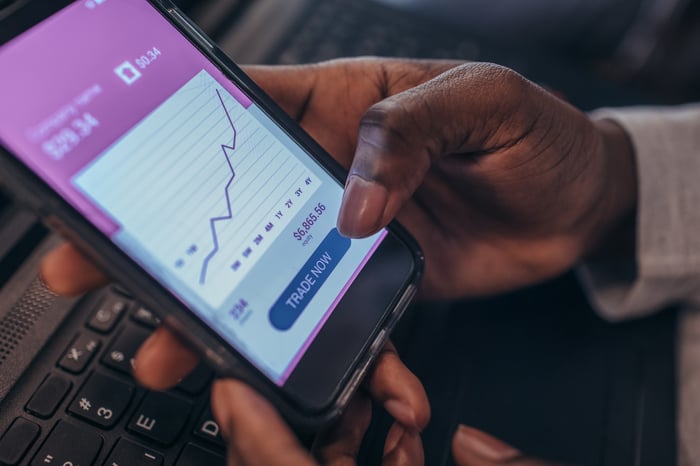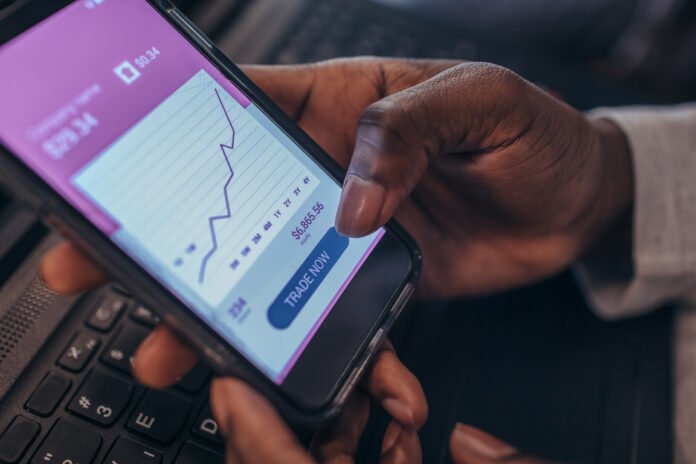Tokenization has been one of the hottest buzzwords in the crypto industry for the past 12 months. Now we’re finally starting to see what can happen when blockchain technology meets traditional stock market investing.
On June 30, Robinhood Markets (HOOD 3.93%) shook up the financial world with the launch of tokenized stocks for retail investors. According to Robinhood Chief Executive Officer Vlad Tenev, these tokenized stocks represent the greatest innovation in capital markets in decades. But what, exactly, are they? And what do they mean for investors?
What are tokenized stocks?
Tokenization refers to the transformation of real-world assets into digital assets that live on the blockchain. Ownership in that asset is represented by a digital token that can be traded just like any crypto token.
In this case, the real-world assets being transformed are stocks, and the place to trade them is on Robinhood’s trading platform. For now, trading in these tokenized stocks will take place 24/5, but according to Robinhood, trading will soon be 24/7.

Image source: Getty Images.
It can be helpful to think of these tokenized stocks as digital twins. Robinhood buys a real-world stock, and then, with a little blockchain alchemy, transforms that into a digital token. In theory, this digital token will then mimic the price action of the real-world stock on a 1:1 basis. If the value of Company X goes up by 10% in one day, then the value of your token will go up by 10% as well.
Pros
Tokenization provides a number of advantages for retail investors. For one, investors get the enhanced liquidity of being able to trade these tokens on the blockchain. Second, they get access to the speed, efficiency, security, and transparency of blockchain technology. Third, they can trade tiny fractional shares of any company’s stock that has been tokenized.
According to Robinhood, tokenized stocks will modernize the traditional system of buying and selling stocks. If you’ve ever been frustrated by not being able to trade equities on the weekend or on holidays, then tokenized stocks represent a possible solution. In addition, once you have the token, you can then do different things with it that simply aren’t possible in the world of traditional finance, all thanks to the power of decentralized finance.
Robinhood is launching its tokenized stock offerings in Europe first, as a way of giving European investors access to the U.S. market. Robinhood says that more than 200 tokenized stocks and exchange-traded funds (ETFs) will be available for trading on its platform. In the future, U.S. investors might be buying tokenized stocks from Europe, Asia, or Latin America.
Cons
However, there are drawbacks to tokenized stocks. The primary goal is to give investors exposure to the price of the underlying real-world stock. They do not confer any traditional stock ownership privileges. There are no voting rights, for example. And if the stock pays dividends, you may not receive those dividends.
You really have to read the fine print. For example, Robinhood says that its tokenized stocks will, indeed, pay dividends to investors. It depends on the blockchain smart contracts and how they are written for each token.
Things get more complex once you move beyond publicly traded companies. For example, it is also possible to create tokenized equity in private companies. At its June investor event in France, Robinhood actually gave away tokens for OpenAI and SpaceX, arguably two of the hottest privately held tech companies right now.
That caused a bit of an uproar. OpenAI, for example, immediately spoke out and said that these tokens are not OpenAI equity, and do not represent any type of ownership interest in the company. The company did not work with Robinhood on the launch of these tokens, and warned investors to be careful.
Robinhood says that the ultimate goal is to open up the world of private markets to retail investors. Why should ultra-wealthy accredited investors be the only ones who can invest early in a hot tech company? Why should venture capitalists be the primary gatekeepers to these companies?
That’s potentially what makes tokenized stocks so revolutionary. They could lead to a transfer of power, money, and influence in the financial world. They could fundamentally change the way we think about the valuation of companies, both public and private. And they could forever blur the line between investing in public companies and investing in private companies.
Outlook for American investors
Right now, regulators in the U.S. are racing to keep up with the pace of crypto innovation. Until all the regulatory issues get worked out, these tokenized stocks from Robinhood will only be available to European investors.
The good news is that several crypto platforms, in competition with Robinhood, are now working on tokenized stocks for U.S. investors. My prediction is that tokenized stocks will be mainstream in the U.S. by the end of next year.
Now that the Trump administration has let the crypto genie out of the bottle, crypto innovation is taking place at an unprecedented scale and pace. Tokenized stocks are just the first in what should be a long line of new innovations for the individual investor.
